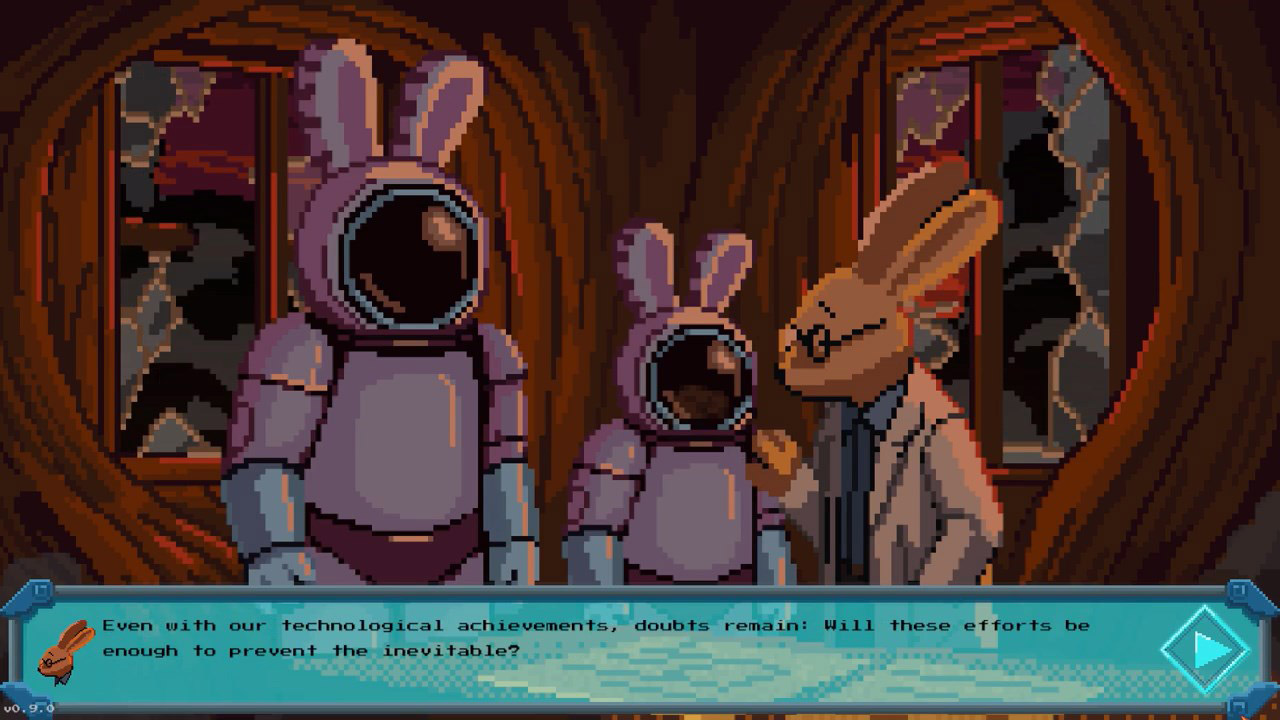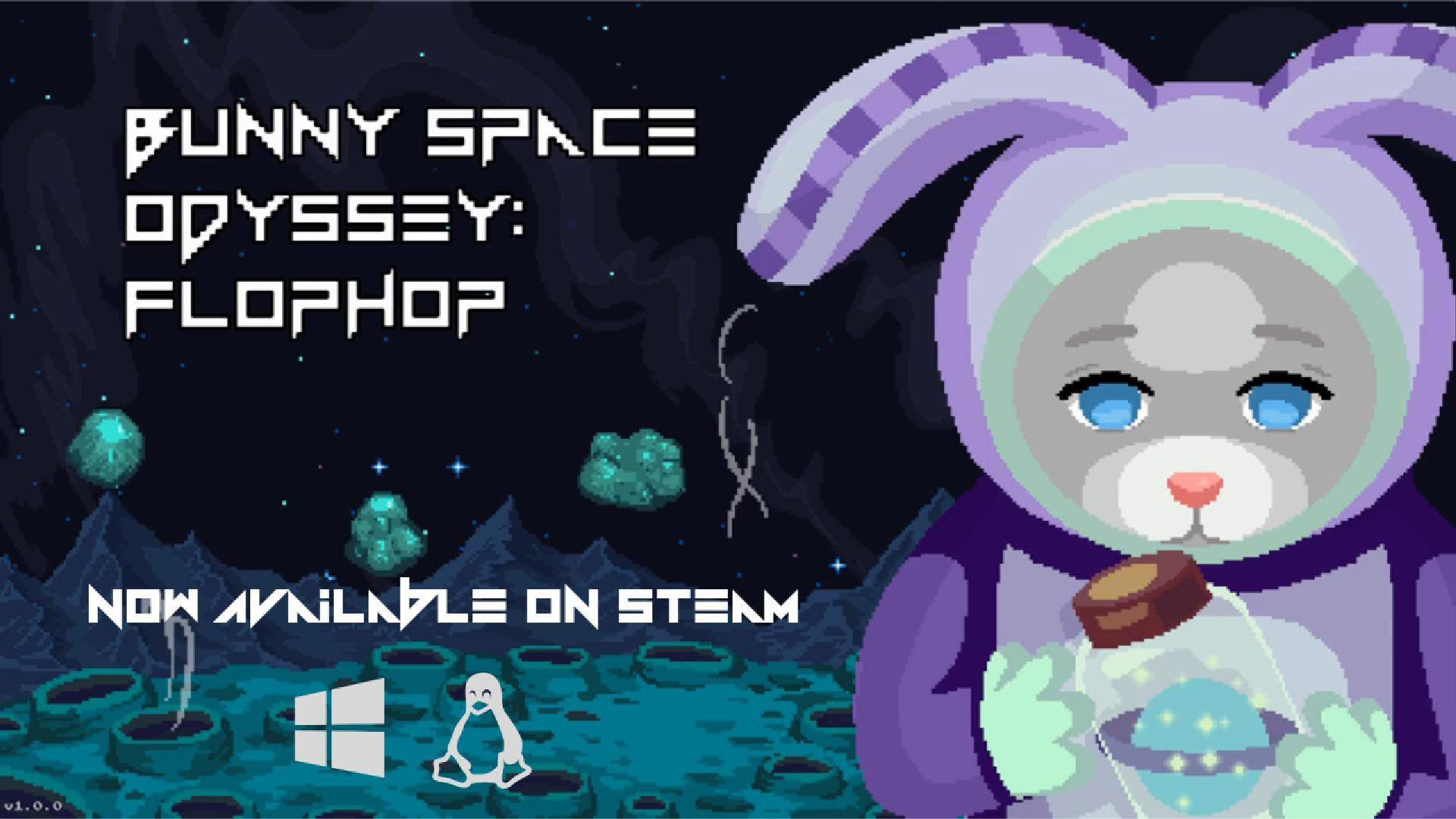In Bunny Space Odyssey: FlopHop, developer AinkOink invites players into a dreamlike 2D adventure where loneliness, memory, and resilience intertwine beneath an endless sky. The story follows Ponchee, a small, wide-eyed bunny who awakens with no recollection of who she is or where she has come from. Stranded on a silent, uninhabited planet known as FlopHop, she must piece together her lost past with the guidance of an intelligent spacesuit called Usagi-01. What unfolds is not a tale of battle or conquest, but one of introspection, healing, and the quiet strength it takes to move forward when the past has slipped away.
FlopHop itself is an enigma, for an empty, echoing world where sound, memory, and technology seem to merge into something hauntingly beautiful. Each area Ponchee explores reveals fragments of her former life while deepening the mystery of why she has been brought here. Ancient ruins hum with forgotten energy, hollow machines murmur secrets of long-lost creators, and the wind carries whispers of a civilisation that once was. Through delicate exploration and environmental storytelling, the player discovers not only Ponchee’s memories but also traces of a wider world scarred by wars and catastrophes, for a broken Earth reborn in silence and starlight.
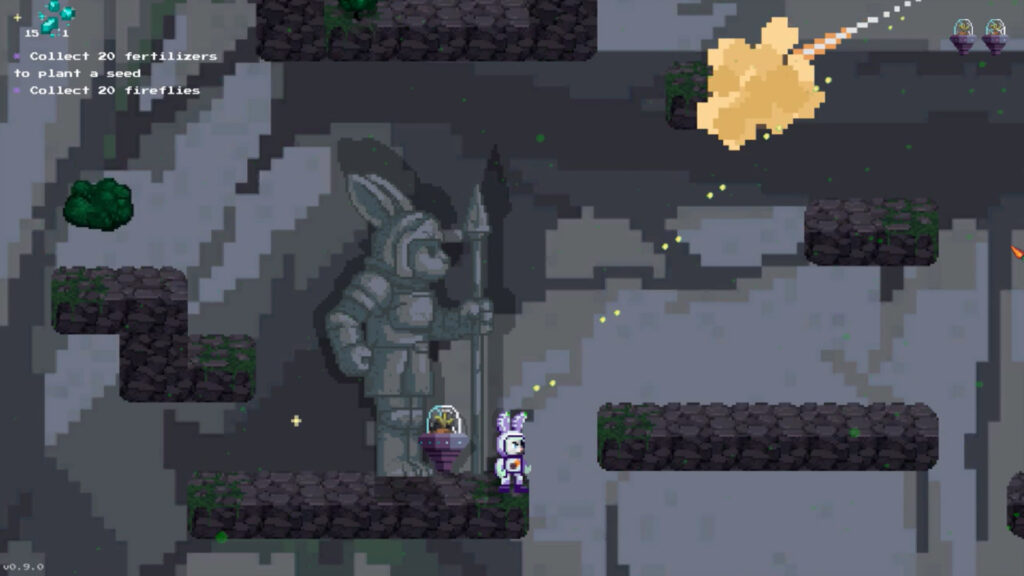
The game’s visual style is unmistakably distinct. Every scene is rendered in a hand-drawn, painterly 2D aesthetic, layered with parallax and awash in ethereal colour palettes that evoke both melancholy and wonder. The soft hues and subtle movement of FlopHop’s landscapes give each moment a sense of gentle transience, as though the planet itself is dreaming. The result is an atmosphere that feels tenderly alive, even in its stillness.
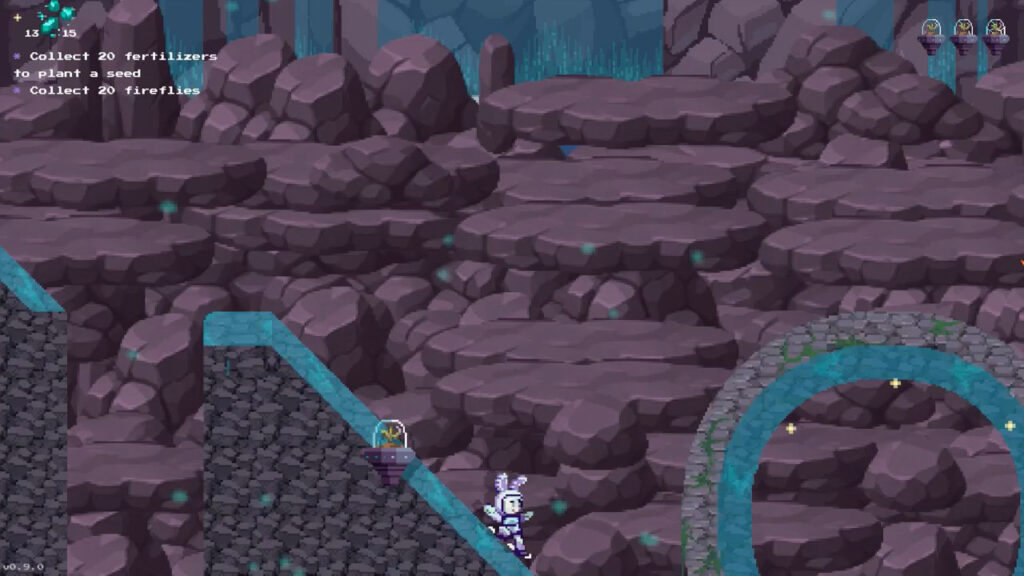
Bunny Space Odyssey: FlopHop blends exploration, puzzle-solving, and narrative seamlessly. Players navigate interconnected environments, unlocking memories through interactive dialogues and short narrative mini-games, for the curious RoboTable or the Encyclopaedia of Wisdom. These diversions are never distractions but quiet meditations on meaning and connection. Progress depends not on combat but on discovery and reflection, encouraging players to slow down, observe, and feel.
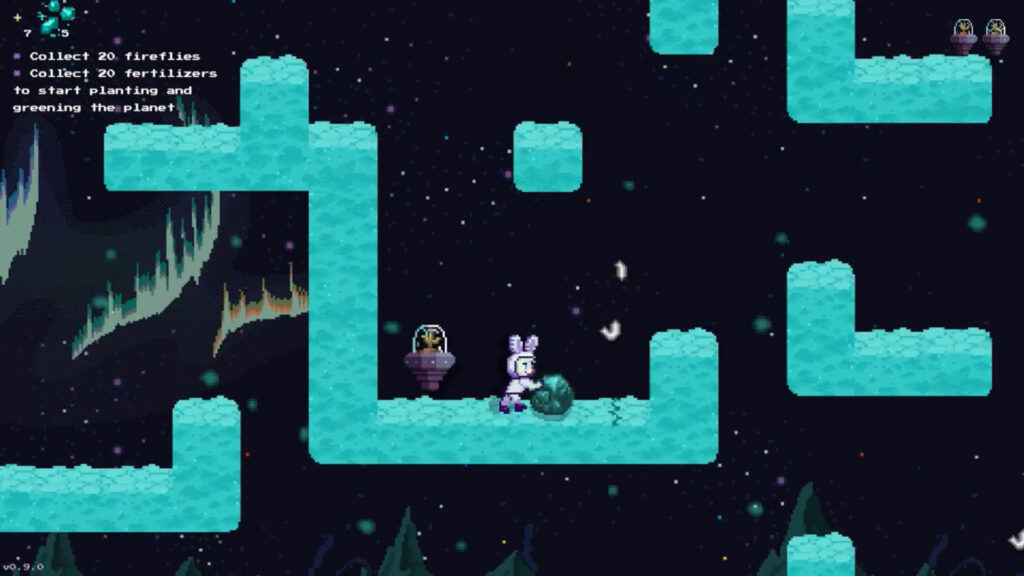
At the heart of the journey is the relationship between Ponchee and Usagi-01. The spacesuit is more than a tool, it is a voice of reason, doubt, and compassion, for sometimes questioning Ponchee’s motives, sometimes offering comfort when silence becomes too heavy. Their exchanges bring warmth and humanity to a world otherwise bereft of life. Through them, players experience a dialogue not only between two characters but between grief and acceptance, loss and endurance.
Music is the lifeblood of FlopHop. The original soundtrack by AinkOink paints emotion through sound, melancholic piano lines, gentle clarinet melodies, and fragile vocal textures form an aural landscape that mirrors Ponchee’s inner world. The clarinet and piano embody the planet’s lonely serenity, while Ponchee’s leitmotif, composed of breathy, almost broken vocal tones, captures the rawness of her rediscovered emotions. Sound design becomes a form of storytelling, a language that speaks when words fail.
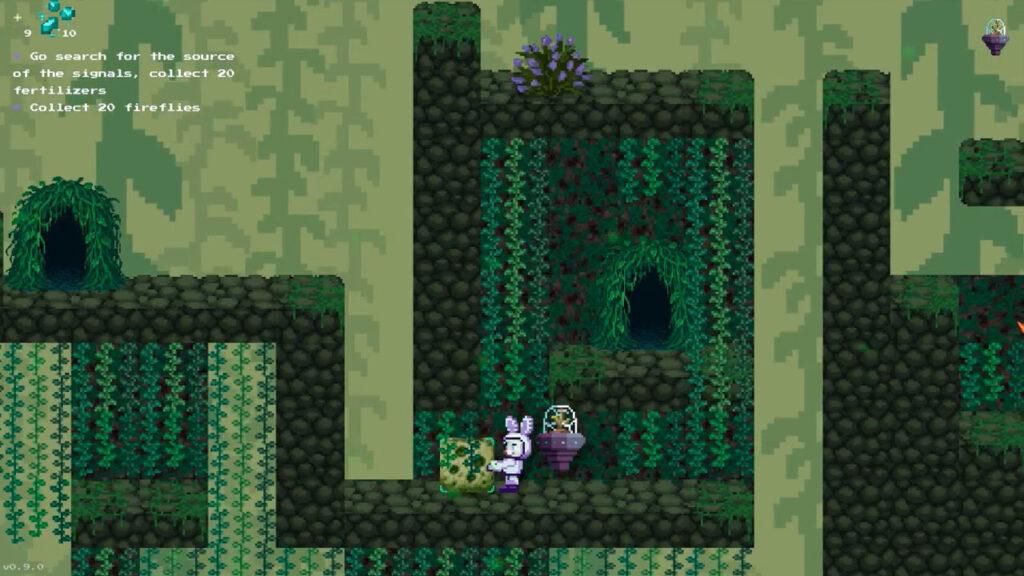
Beneath the quiet surface of FlopHop lies a deeply personal creation. Its conception was born from the developer’s own experience of loss, the passing of a father, for the game stands as both a memorial and an offering. Through Ponchee’s journey, grief transforms into something luminous: an exploration of mortality and memory that never seeks to instruct, only to evoke. The game suggests that the body, like a spacesuit, merely carries the soul, and that love, once shared, endures beyond the limits of time and form.
Though there are no grand battles or triumphant endings, those who wander far enough may uncover a secret confrontation, one not of violence, but of memory. Deep within the ruins of the last star, Ponchee faces a shadow shaped in their own image, a manifestation of all that was lost and never spoken. The encounter unfolds without weapons or words, only reflections and silence. It is a battle of remembrance, where surrender becomes the only path to victory, and understanding is the only prize.
When it ends, there is no celebration, only the fragile persistence of a small rabbit searching for meaning in the ruins of forgotten stars. It is a story that embraces the contradictions of existence: loss and hope, fragility and strength, solitude and connection. Within its silence, players may find echoes of their own memories, and perhaps, like Ponchee, the courage to continue forward, even without remembering where they began.
Emotional, dialogue-driven narrative woven through environmental storytelling and reflective exploration
Distinct hand-drawn 2D art style with layered parallax depth and soft, dreamlike colours
Puzzle-based gameplay seamlessly integrated with platforming and narrative mini-games
Original soundtrack by AinkOink, featuring piano, clarinet, and vocal textures mirroring Ponchee’s emotions
Usagi-01, the intelligent spacesuit companion that guides, questions, and comforts throughout the journey
Exploration of FlopHop, a silent and mysterious planet filled with ruins, echoes, and forgotten technology
Story progression tied to discovery and introspection rather than combat or conflict
Philosophical themes of memory, grief, and resilience expressed through a quiet, emotional odyssey


